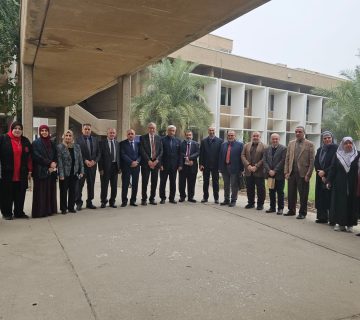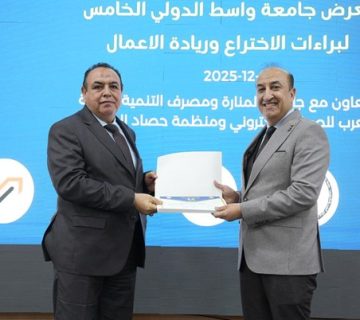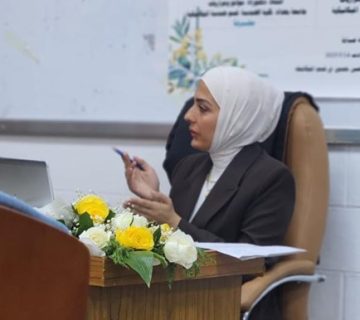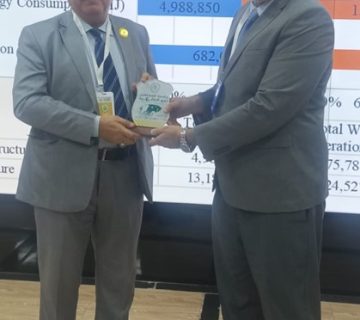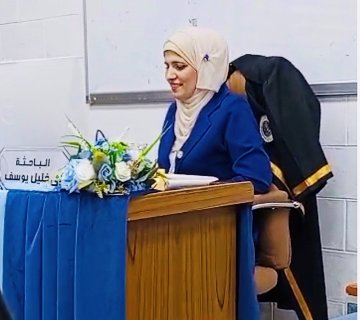It was conducted on Thursday, 19/9/2024, in the Graduate Studies Hall of the Petroleum Engineering Department. the discussion of the master’s thesis of the student Ali Abdulrahman Qasim, which is tagged:
” Performance Analysis of Solar Updraft Tower with and without Using Phase Change Material”.
The discussion committee consisted of names listed below:
1- Prof. Dr. Ammar Ali Farhan (Chairman)
2- Asst. Prof. Dr. Raad K. Mohammed (Member)
3- Asst. Prof. Dr. Sarmad A. Abdul Hussein (Member)
4- Prof. Dr. Munther Abdullah Mussa (Supervisor)
In this study, a mutual numerical and experimental approach was used to investigate the effects of integrating paraffin wax as a PCM into the SUT and to analyze its potential for enhancing the system’s performance. A small-scale SUT with a quarter-circular tank, 6 cm in height, filled with paraffin wax as PCM, was modeled and analyzed numerically using CFD software (ANSYS FLUENT 2022/R1). Two cases were investigated for comparison: one with the tank filled with paraffin wax acting as PCM, and the other with the tank containing only air. The simulation was conducted during daytime intervals, starting at 9:00 AM and ending at 5:30 PM, with intervals mostly of 90 minutes. At the last reading, which was near sunset, the maximum air velocity reached 0.99 m/s for the case with PCM, compared to 0.82 m/s for the case without PCM. The performance curves of average air velocity, average domain temperature rise, and mass flow rate revealed improvements of 12.75%, 18.1%, and 7.5%, respectively, for the period from 1:30 PM to the end of the daytime period when paraffin wax was used as PCM.
Accordingly, the thesis included recommendations including:
- That the operating time with PCM can be extended significantly into the nighttime after sunset.
- Recommended that integrating paraffin wax into the SUT system can enhance thermal performance significantly.
- Adding paraffin wax to the solar updraft tower system improves performance and increases operating time.
After the scientific discussion by the members of the discussion committee, the researcher received a rating of (very good).



